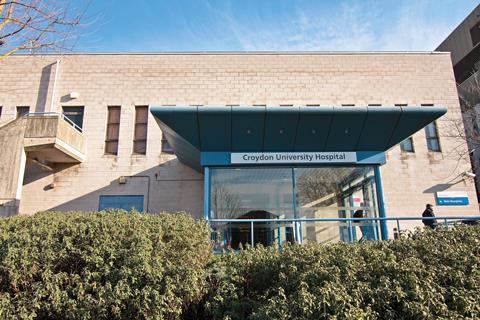Darnley v Croydon Health Services NHS Trust [2018] UKSC 50

The claimant was a 26-year-old man who was assaulted one late afternoon in May 2010. He was driven by a friend to the A&E department at the Mayday Hospital in Croydon. He told the receptionist that he had suffered a head injury and that he was feeling unwell, only to be told that he would have to have to wait up to four to five hours before somebody examined him. The claimant told the receptionist that he could not wait that long as he felt close to collapse, to which the reply was that if he did collapse, then he would be treated as an emergency. He waited initially, but left the hospital after 19 minutes without informing the receptionist.
Following a deterioration in his condition, he was taken by ambulance back to the hospital and a CT scan identified a large extradural haematoma. Although he underwent surgery, he suffered permanent brain damage in the form of a severe left hemiplegia.
The claimant brought proceedings against the defendant hospital. However, the trial judge decided that, as a matter of law, it would not be fair, just and reasonable to impose liability upon the defendant for harm arising as a result of the failure by the receptionist staff to inform the claimant of the likely waiting time to be seen by a triage nurse. The claimant’s appeal to the Court of Appeal was dismissed, and his case now came before the UK Supreme Court.
Lord Lloyd-Jones, with whom the other members of the court agreed, said that the common law had abandoned the search for a general principle capable of providing a practical test applicable in every situation in order to determine whether a duty of care was owed and, if so, what was its scope. There were established categories of specific situations where a duty of care was recognised and the law was willing to move beyond those situations on an incremental basis, accepting or rejecting a duty of care in novel situations by analogy with established categories.
However, the present case fell squarely within an established category of duty of care. It had long been established that such a duty was owed by those who provided and ran a casualty department for persons presenting themselves complaining of illness or injury. This was not a new head of liability for NHS trusts and it was sufficient that the case fell within an established category in which the law imposed a duty of care. Lord Lloyd-Jones referred to the case of Kent v Griffiths [2001] QB 36 where the London Ambulance Service was held liable in negligence for its delay in responding to an emergency call as a result of which the claimant suffered brain damage.

Questions as to the existence and scope of a duty of care owed by the defendant should not depend on whether the misleading information was provided by a person who was or was not medically qualified. The defendant had charged its non-medically-qualified staff with the role of being the first point of contact with persons seeking medical assistance and, as a result, with the responsibility for providing accurate information as to its availability.
Lord Lloyd-Jones said that the real issue in this case was not whether there was a duty of care, but whether there had been a breach of that duty. A receptionist in an A&E department could not, of course, be expected to give medical advice or information, but he or she could be expected to take reasonable care not to provide misleading advice as to the availability of medical assistance. The two receptionists on duty at the material time were both aware that the standard procedure was that anyone complaining of a head injury would be seen by a triage nurse. They also accepted that the usual practice was that such a patient would be told that they would be seen by a triage nurse within 30 minutes of arrival or as soon as possible.
The trial judge had made the critical finding that it was reasonably foreseeable that a person who believed that it might be four or five hours before he would be seen by a doctor might decide to leave. Lord Lloyd-Jones had no doubt that the provision of such misleading information by a receptionist was negligent. The trial judge had also found that, if the claimant had been told that he would be seen within 30 minutes, he would have stayed in the waiting area and been seen before he left. Consequently, it was reasonably foreseeable that he might decide to leave the hospital, particularly as he was in a vulnerable condition. Finally, the trial judge had made a further finding of fact that had the claimant suffered the collapse while at the Mayday Hospital, he would have been treated immediately and made a very near full recovery.
This was plainly a very difficult case (as many clinical negligence cases are) on the issue of causation but the UK Supreme Court had the benefit of the trial judge’s critical findings. More interestingly, the court was not prepared to get bogged down in complex issues of whether there was a duty of care, but simply stated that the duty was already there.
Malcolm Johnson is senior solicitor at Hudgell Solicitors































No comments yet